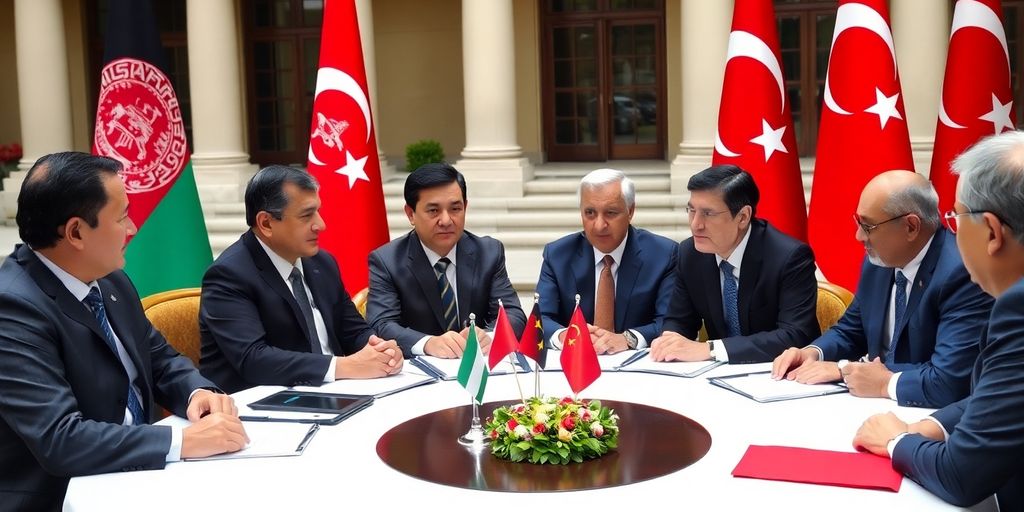Turkey has officially ended the diplomatic mission of Afghanistan’s former government, allowing the Taliban to appoint their own representatives. This significant move reflects the ongoing changes in Afghanistan’s international relations since the Taliban’s takeover in 2021.
Key Takeaways
- Turkey has terminated the diplomatic mission of the former Afghan government.
- The Taliban is now positioned to appoint its own diplomats.
- This decision follows pressure from the Taliban on Turkish officials and diplomats.
- The move is part of the Taliban’s broader strategy to gain control over Afghanistan’s diplomatic missions worldwide.
Background
The decision by Turkey to end the mission of diplomats appointed by Afghanistan’s previous pro-Western government marks a pivotal moment in the diplomatic landscape of Afghanistan. The outgoing diplomatic team announced that they had handed over the embassy in Ankara to Turkey’s Foreign Ministry, signaling a shift in recognition and authority.
The Turkish government stated that the decision was influenced by the Taliban’s pressure on both the Afghan diplomats and Turkish officials. The former diplomats expressed their concerns about the ongoing pressure they faced, which ultimately led to the termination of their mission.
Taliban’s Growing Influence
Since the Taliban regained control of Afghanistan in August 2021, they have been actively working to establish their legitimacy on the international stage. The conclusion of the former government’s diplomatic mission in Turkey is part of a broader trend, with the Taliban now controlling over 40 diplomatic missions worldwide.
The Taliban’s Foreign Ministry has emphasized that changes in diplomatic staff are a normal practice, asserting that the Afghan embassy in Ankara will continue its operations as usual. This statement reflects the Taliban’s intent to maintain a presence in international diplomacy despite widespread non-recognition from many countries.
Implications for Afghan Diplomacy
The termination of the former Afghan diplomats’ mission has several implications:
- Legitimacy of the Taliban: This move enhances the Taliban’s claim to legitimacy as the governing body of Afghanistan, as they gain control over diplomatic missions.
- International Relations: The shift may affect Afghanistan’s relationships with other nations, particularly those that have yet to recognize the Taliban government.
- Humanitarian Concerns: The Turkish government has indicated that its policy aims to alleviate the hardships faced by the Afghan people, suggesting a continued engagement with the Taliban despite the complexities of their governance.
Future Prospects
As the Taliban continues to solidify its control over Afghanistan’s diplomatic missions, the international community remains divided on how to engage with the new regime. While some countries have established ties with the Taliban, many others are hesitant due to concerns over human rights, particularly regarding women’s rights and freedoms.
The situation in Afghanistan remains fluid, and the international response will likely evolve as the Taliban seeks to navigate its diplomatic relationships and address the pressing humanitarian needs of its citizens. Turkey’s decision to end the former diplomats’ mission is a clear indication of the shifting dynamics in Afghan diplomacy and the challenges that lie ahead for the Taliban as they seek recognition and support on the global stage.






